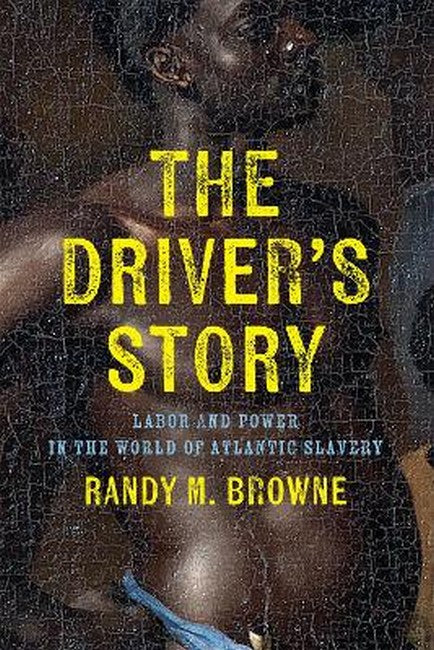Randy M. Browne is Professor of History at Xavier University and author of Surviving Slavery in the British Caribbean, also available from the University of Pennsylvania Press.
Request Academic Copy
Please copy the ISBN for submitting review copy form
Description
Introduction Sources and Method Chapter 1. The Driving System Chapter 2. Driving Chapter 3. Big Men Chapter 4. Unbounded Authority Chapter 5. Rebellion Conclusion Notes Index Acknowledgments
"Browne provides a nuanced, thought-provoking analysis of the complex roles played by enslaved drivers in the southern British Caribbean. By situating drivers at the intersection of plantation management, enslaved community leadership, and resistance, Browne illuminates their 'fundamental predicament' as both the enforcers and victims of the plantation regime. Browne's work thus offers a critical intervention that deepens our understanding of the entangled dynamics of power, resistance, and survival in Atlantic slavery." (The Americas) "The Driver's Story is the first intensive study of the plantation slave driver, the Black head man of the fields with the agonizing dual role of maximizing the owner's harvest through any means possible, including torture, and being an enslaved person himself...Browne is to be commended for exploring one of slavery's most complex and even troubling stock characters. We may never understand why drivers made the choices they did, taking subversive action in some cases and remaining strategically silent in others. But this book lucidly and provocatively advances the discussion." (Los Angeles Review of Books) "Browne's engaging study offers a nuanced and valuable contribution to the fields of labour history and histories of slavery...[His] examination of the drivers' position, their function, their social role, and efforts to build communities, as well as the violence and horrors they faced in these efforts, allows us to understand better the durability of the plantation system in the face of so much resistance and struggle. The Driver's Story enriches our understanding of the plantation regime and the complexity and nuances of enslaved labourers' struggles for survival." (Labor History Review) "The Driver's Story is a critical contribution to scholarship on the nexus of race, power, and capitalism in the Atlantic world...[A]n achievement of archival research, close reading, and careful analysis, and a major contribution to the expanding historiography of racial capitalism." (H-Slavery) "This thoughtful book reexamines one of the most vilified and caricatured figures in Atlantic slavery: the overseer, or what Browne calls "the driver." Drivers have come to symbolize the Atlantic slave regime's brutal tactics, namely whipping and sexual assault. However, lay readers may not know that most drivers were enslaved Black men...To produce this empathetic "human history," Browne expertly and painstakingly sifted through archival records found across the Atlantic World from Guyana to the UK. " (Choice) "This utterly captivating and unflinching book leads readers deep into the driver's challenging world. It provides an unusually close-up view of enslaved people's daily lives as they faced their enslavers and each other. Indispensable to anyone interested in slavery, colonialism, and racial capitalism." (Marjoleine Kars, author of Blood on the River: A Chronicle of Mutiny and Freedom on the Wild Coast) "Browne's vital book does three things extremely well. It makes an important argument about the centrality of drivers to the functioning of plantation capitalism and the social and political lives of the enslaved. It offers a penetrating analysis of the existential predicament of people who became drivers. Finally, it presents a highly readable story about one of the most vexing topics in human history: oppressed oppressors. The Driver's Story will occupy a significant place in the historiography of slavery." (Vincent Brown, author of Tacky's Revolt: The Story of an Atlantic Slave War) "In his impressive, deeply researched book, Randy M. Browne helps us to understand driving as a practice throughout Caribbean plantation slave societies, while grounding his analysis in specific lives and places. Drivers, Browne shows us, lived a 'nightmare' in which they were terrorized into terrorizing others, leading to deep damage to them even while they reaped some tangible material rewards. Browne's insights, particularly into the politics of drivers and the development of rebellions, will surely be influential in future scholarship." (Diana Paton, author of The Cultural Politics of Obeah: Religion, Colonialism and Modernity in the Caribbean World)

